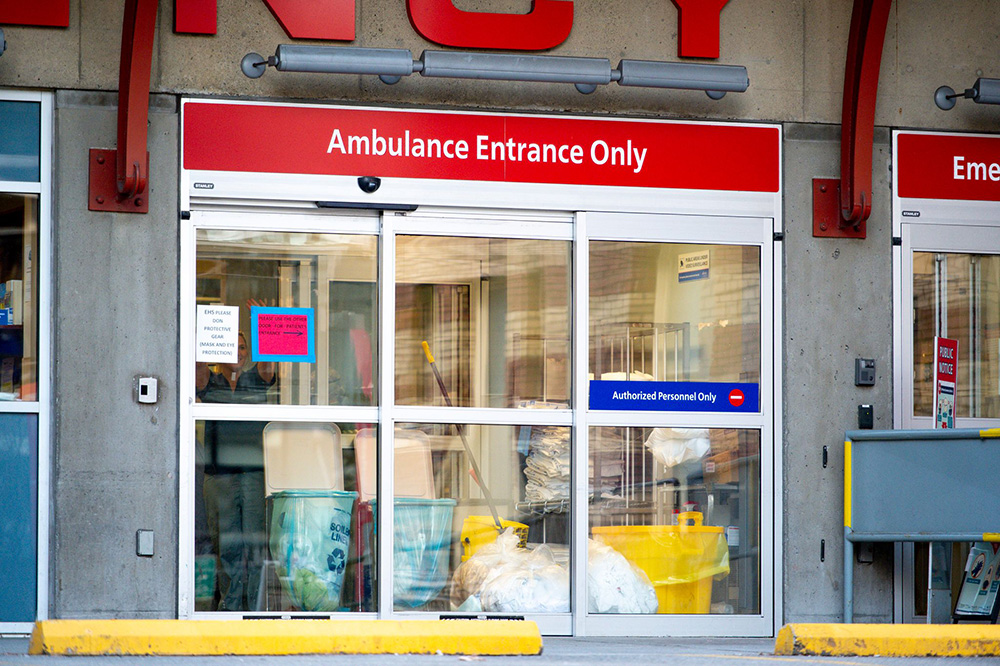In early July, B.C.’s NDP government introduced Bill 22, an amendment to the Mental Health Act that would allow the involuntary hospitalization of youth under 19 for up to seven days following a drug overdose.
The bill was immediately opposed by a range of groups, including B.C.’s Chief Coroner, the Union of B.C. Indian Chiefs, the Representative for Children and Youth, legal advocates at Health Justice, BC Civil Liberties Association, Pivot Legal Society and the Canadian Drug Policy Coalition, nurses with expertise in mental health and substance use, and people who use substances, such as the BC/Yukon Association of Drug War Survivors.
By the end of July, the NDP pressed pause on Bill 22. At the time, Minister of Mental Health and Addictions Judy Darcy did not address the critiques of the bill.
Instead, she said the government was unable to pass the bill before the end of the legislative session and would use the summer break to engage in more consultation.
Instead of consultation, we got an election. Citing an inability to secure votes from the BC Greens to pass Bill 22 into law, Premier John Horgan launched a snap vote in hopes of winning a majority government.
On Oct. 24, he got his wish.
As we await the announcement of cabinet ministers, including the next minister of mental health and addictions, we want to state loud and clear that reintroducing Bill 22 would be a mistake.
There is nothing salvageable about this bill. It is the product of insufficient and inadequate consultation, especially with youth groups in the province.
It also failed to meet consultation requirements with Indigenous communities and leaders despite the risk that Indigenous youth will be disproportionally targeted and hospitalized against their will.
It also ignores the proven harms of compulsory and coercive approaches to addictions care, the evidence showing significant barriers to care for youth who use substances and the need for accessible youth-specific harm reduction services.
Finally, it misses the mark on what should guide the overdose response: evidence-based, compassionate, ethical and just policies.
Reintroducing Bill 22 now would be a mistake, and a deadly one.
Four years into a provincial public health emergency, we know that the main driver of overdoses is a combination of a toxic drug supply and a punitive system that criminalizes people who use drugs.
This system creates barriers for people to seek help, stopping many people from calling 911 during an overdose due to fear of punishment. Bill 22 would make those fears worse.
We know that keeping youth against their will for up to seven days after an overdose would put them at greater risk of overdosing and dying upon their release. This risk is highlighted in the Chief Coroner’s statement that warns of serious unintended consequences of Bill 22, including increased fatalities.
Bill 22 might also traumatize youth in a health-care system that’s supposed to support them. This could result in a breach of trust, leading youth to avoid accessing health care in the future.
Now that the NDP has successfully leveraged Bill 22 to win a majority mandate, it should scrap the bill and instead work toward increasing access to regulated, culturally safe, trauma-informed, gender-affirming, evidence-based, voluntary care and treatment for youth across the province.
Involuntary hospitalization is not care, nor is it treatment. It is not good policy either.
Marilou Gagnon (she/her), RN, PhD, is an associate professor in nursing at University of Victoria, scientist at the Canadian Institute for Substance Use Research, and president of the Harm Reduction Nurses Association.
Nesa Hamidi Tousi (they/them), RN, is a master’s student in nursing at University of Victoria and a registered nurse working in Vancouver’s Downtown Eastside.
Maja Kolar (they/them), RPN, MSN, is an adjunct professor in UBC School of Nursing and a registered psychiatric nurse.
Keren Mitchell (she/her), MN-NP, CARN-AP is an adjunct professor at UBC School of Nursing and Brandon University faculty of graduate studies. She is also a nurse practitioner working with youth who use drugs.
Tim Gauthier (he/him), MN-NP(F) is the vice-president of the Harm Reduction Nurses Association and is a nurse practitioner who works with adolescents and adults in the medical withdrawal management setting.
Alison Crysler (she/her), RN, is a registered nurse in Vancouver. ![]()
Read more: Health, BC Politics















Tyee Commenting Guidelines
Comments that violate guidelines risk being deleted, and violations may result in a temporary or permanent user ban. Maintain the spirit of good conversation to stay in the discussion.
*Please note The Tyee is not a forum for spreading misinformation about COVID-19, denying its existence or minimizing its risk to public health.
Do:
Do not: